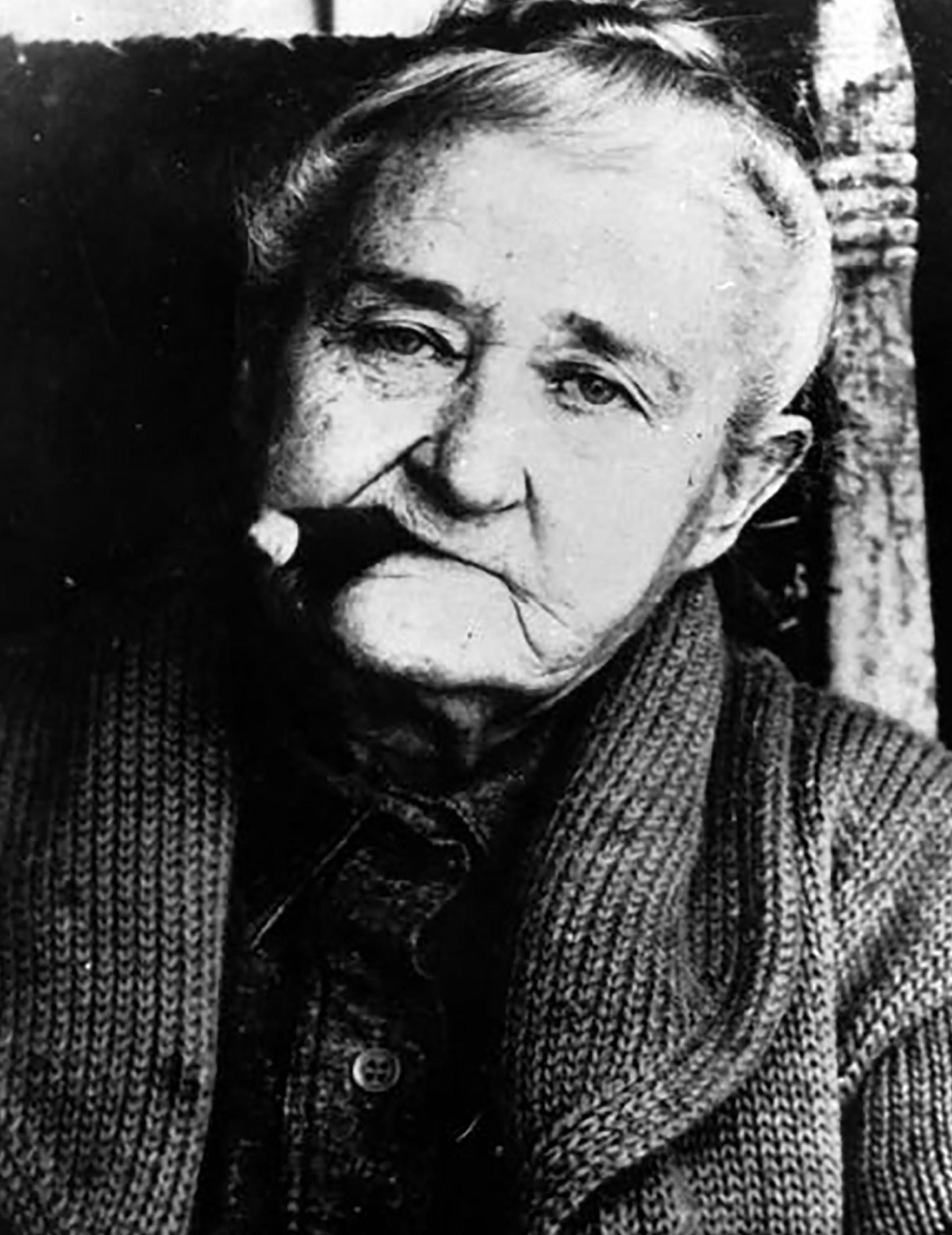
21 minute read
Alice Ivers: Poker Queen of the Frontier
From faro tables to saloon showdowns, Alice Ivers—better known as Poker Alice—ruled Deadwood with brains, beauty, and a .38, leaving legends in her smoky trail.
Story by Chris Enss
A steady stream of miners, ranchers, and cowhands filtered in and out of the Saloon No. 10 in Deadwood, (present day) South Dakota. An inexperienced musician playing an outof-tune accordion squeezed out a familiar melody, ushering the pleasure seekers inside. Burlap curtains were pulled over the dusty windows, and fans that hung down from the ceiling turned lazily.
A distressed mahogany bar stood alongside one wall of the business, and behind it was a surly looking bartender. He was splashing amber liquid into glasses as fast as he could. A row of tables and chairs occupied the area opposite the bar, every seat was filled with a card player. Among the male gamblers was one woman; everyone called her “Poker Alice.”
She was an alarming beauty, fair-skinned and slim. She had one eye on the cards she was dealing and another on the men at the game two tables down.
Warren G. Tubbs was studying the cards in his hand so intently he didn’t notice the hulk of a man next to him get up and walk around behind him. The huge man with massive shoulders and ham-like hands that hung low to his sides peered over Tubbs’ shoulder and scowled down at the mountain of chips before him. Alice’s intensely blue eyes carefully watched the brute’s actions. He casually reached back at his belt and produced a sharp knife from the leather sheath hanging off his waist. Just as he was about to plunge the weapon into Tubbs’ back, a gunshot rang out.
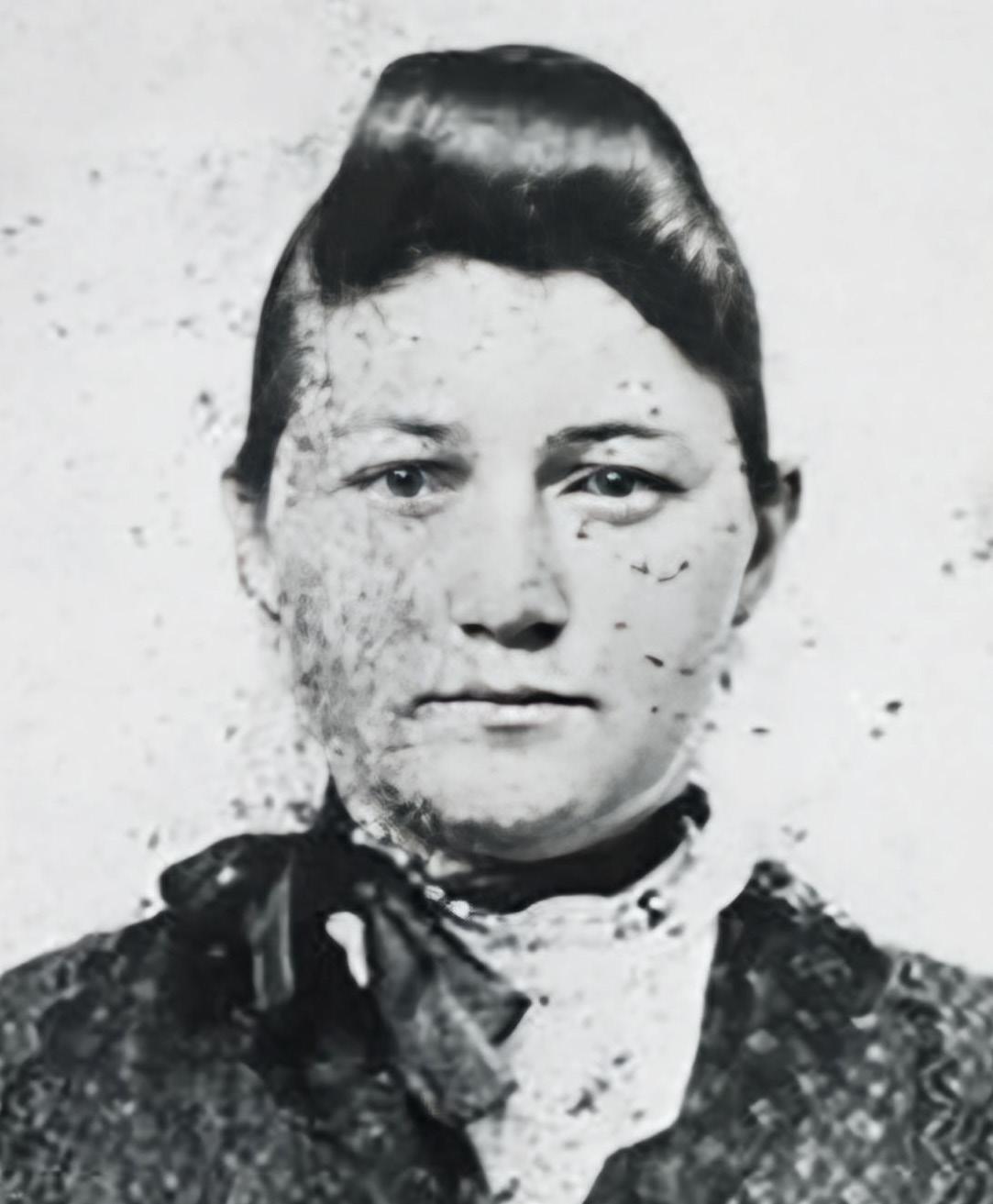
A sick look filled the man’s face, and the frivolity in the saloon came to a halt. He slowly dropped the knife. Before dropping to his knees, he turned in the direction from which the bullet had come. Alice stared back at him, her .38 pistol pointed at his head. The man fell face-first onto the floor. His dead body was quickly removed to make way for another player. In a matter of minutes, the action inside the tavern returned to normal. Tubbs caught Alice’s gaze and grinned. He nodded to her and waggled his fingers in a kind of salute. She smiled slightly and wholly turned her attention back to the poker game in front of her.
Alice Ivers never sat down to play poker without holding at least one gun. She generally carried a pistol in her dress pocket, and often she also had a backup weapon in her purse. The frontier was rough and wild, and wearing a gun, particularly while playing cards, was a matter of survival. It was a habit for Poker Alice.
She was born on February 17, 1851, in Sudbury, Devonshire, England. Alice’s father, whom some historians indicate was a teacher, while others maintain he was a lawyer, brought his wife and family to the United States in 1863. They settled first in Virginia and later moved to Fort Meade, South Dakota.
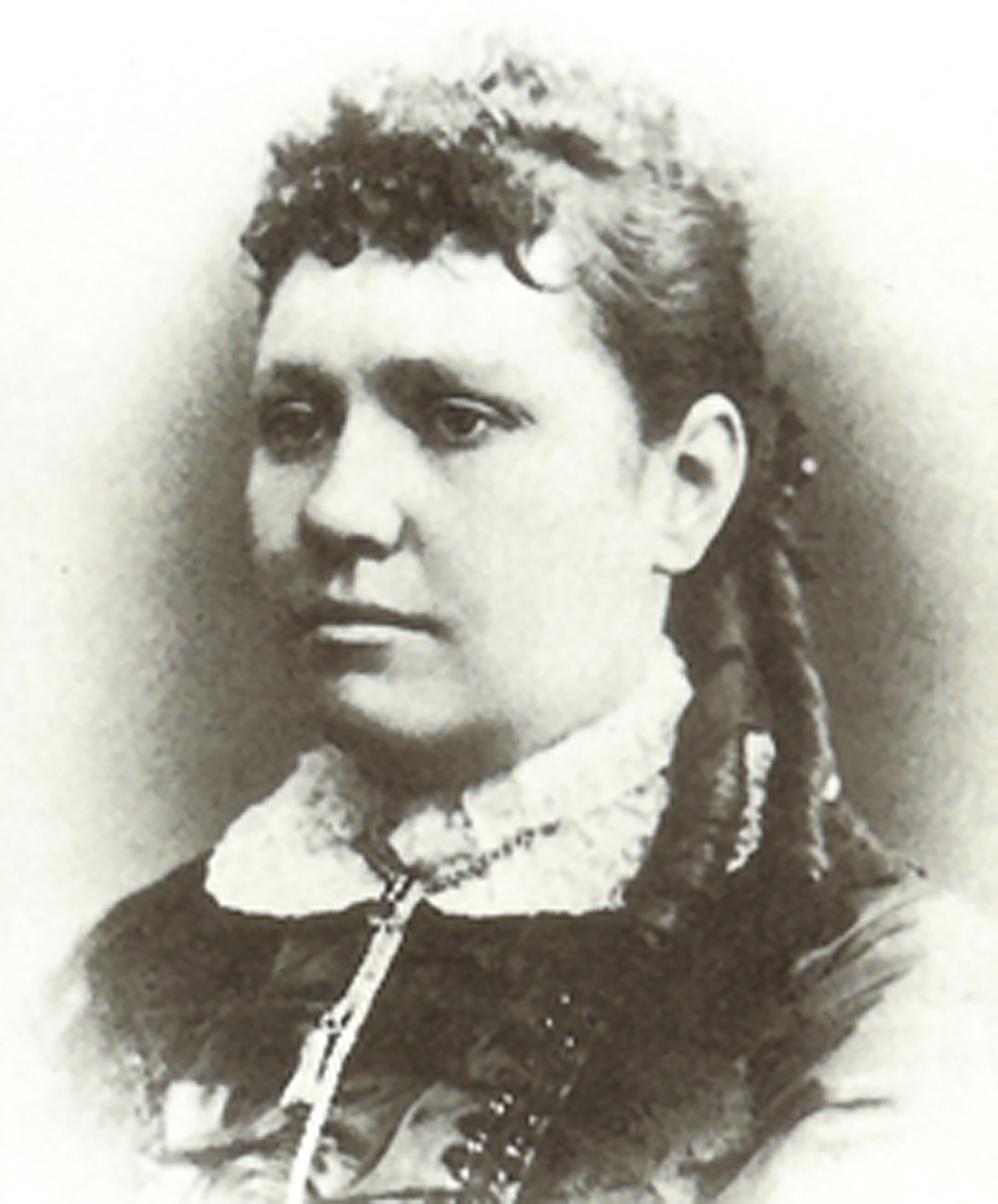
Like most people at the time, the Iverses were lured west by gold. No matter what gold rush town she was living in, Alice always attended school. She was a bright, young girl who excelled in math. The yellow-haired, precocious child quickly grew into a handsome woman, attracting the attention of every eligible bachelor in the area. Frank Duffield, a mining engineer, won her heart and hand. After the two married, he escorted his bride to Lake City, where he was employed. The southwestern Colorado silver camp was an unrefined, isolated location with little to offer in terms of entertainment.
Apart from watching the cardsharps and high-hatted gamblers make a fortune off the luckless miners, there was nothing but work to occupy time.
Bored with life as a simple homemaker and undaunted by convention, Alice visited the gambling parlors. Her husband and his friends taught her how to play a variety of poker games, and, in no time, she became an exceptional player. The fact that she was a mathematical genius added tremendously to her talent.
Most every night Alice was seated at the faro table of the Gold Dust Gambling House, dealing cards, and challenging fast-talking thrill seekers to “put their money into circulation.” She won most of the hands she played, whether it was five-card draw, faro, or blackjack. Her days of gambling for pleasure alone ended when Frank was killed in a mining accident. Left with no viable means of support, Alice decided to turn her hobby into a profession.
Some well-known gamblers, like Jack “Lucky” Hardesty, were not as accepting of a woman cardsharp as others. He made his thoughts on the subject plainly known one evening when he sat down at a faro table and glanced across the green felt at Alice. He refused to play against her, insisting that faro was a man’s game.
Alice didn’t shy away from the verbal assault. She calmly conveyed her intention to remain at the table until he dealt her a hand. Hardesty eventually gave in, but, before he let her have any cards, he warned her not to cry when she lost to him. Poker Alice simply grinned.
At the end of the night, Hardesty was out everything. Alice had won more than $1,500 off him and the other men who wagered on the game. Curious onlookers were reported to have remarked that he had “lost his money like he had a hole in his pocket as big as a stove pipe.” Hardesty attributed Alice’s numerous wins to luck alone.
Alice took that so-called luck from Colorado to other gambling spots in Arizona, Oklahoma, Kansas, Texas, New Mexico, and South Dakota. Along the way, the fashionable beauty developed a habit of smoking cigars and a taste for alcohol. Wherever the stakes were high, the whiskey smooth, and the smokes free, that’s where Alice would be. She generally said nothing if she won, but, if she lost a hand, she’d blurt out, “G-damn it!”
The name Poker Alice meant increased business for gaming houses. People flocked to see the highly skilled poker player “packing a heavy load of luck” and puffing on a thin, black stogie. Warren G. Tubbs was one of the many who came to see Alice play cards. Warren was a house painter and part-time gambler. He was captivated by her; so much so, he didn’t mind losing a hand or two to her. She found him equally charming, and, after a brief courtship, the pair married.
Alice was the better card player of the two and was the primary financial supporter for the family. Tubbs continued with his painting business but would not give up the game entirely. The couple spent many evenings playing poker at the same parlor. Whatever Warren lost Alice made up for in substantial winnings. The average night’s win for her was more than $200.
Alice’s reputation preceded her. To every town the pair traveled, she was offered $25 a night plus a portion of her winnings to act as dealer for the gaming parlor. Alice and Warren were bringing in substantial amounts of money and spending just as much. Alice made frequent visits to New York where she would purchase the finest clothes and jewels, attend several theatrical performances and musicals, and lavish her friends with expensive gifts. When the cash ran out, she would return to her husband and her cards and begin rebuilding her bank.
Warren drank to excess and frequently started fights. Poker Alice was very protective of her husband and got him out of trouble many times, ending any squabble that threatened his life.
Sober, Warren might have been faster on the draw against an offended cowhand. Alice was the better shot most of the time. Her father had taught her how to shoot using his Starr Army .44 revolver. By the age of twelve, she was as fast and accurate with the weapon as any boy her age. When she got older and there were lulls between poker games, Alice would practice her marksmanship by shooting knobs off the frames of pictures hanging on the walls. Her proficiency with a gun was proof to anyone who thought of crossing her or Warren that she could handle herself.
In 1874, Warren and Alice made their way to New Mexico. They had heard that the money to be made at the poker tables in Silver City were some of the richest in the country. Within hours after their arrival, Alice joined a faro game. Hand after hand, she raked in piles of chips. Saloon patrons pressed in around the game to watch the brilliant blonde win again and again. Before the sun rose the following morning, Alice had broken the bank and added to her holdings an estimated $150,000.
Alice and Warren followed the gold rush riches to the town of Deadwood, South Dakota. There, they hoped to continue increasing their winnings. Her expert card playing, and beautiful East Coast gowns brought gamblers to her table. Residents referred to her as the “Faro Queen of Deadwood.”
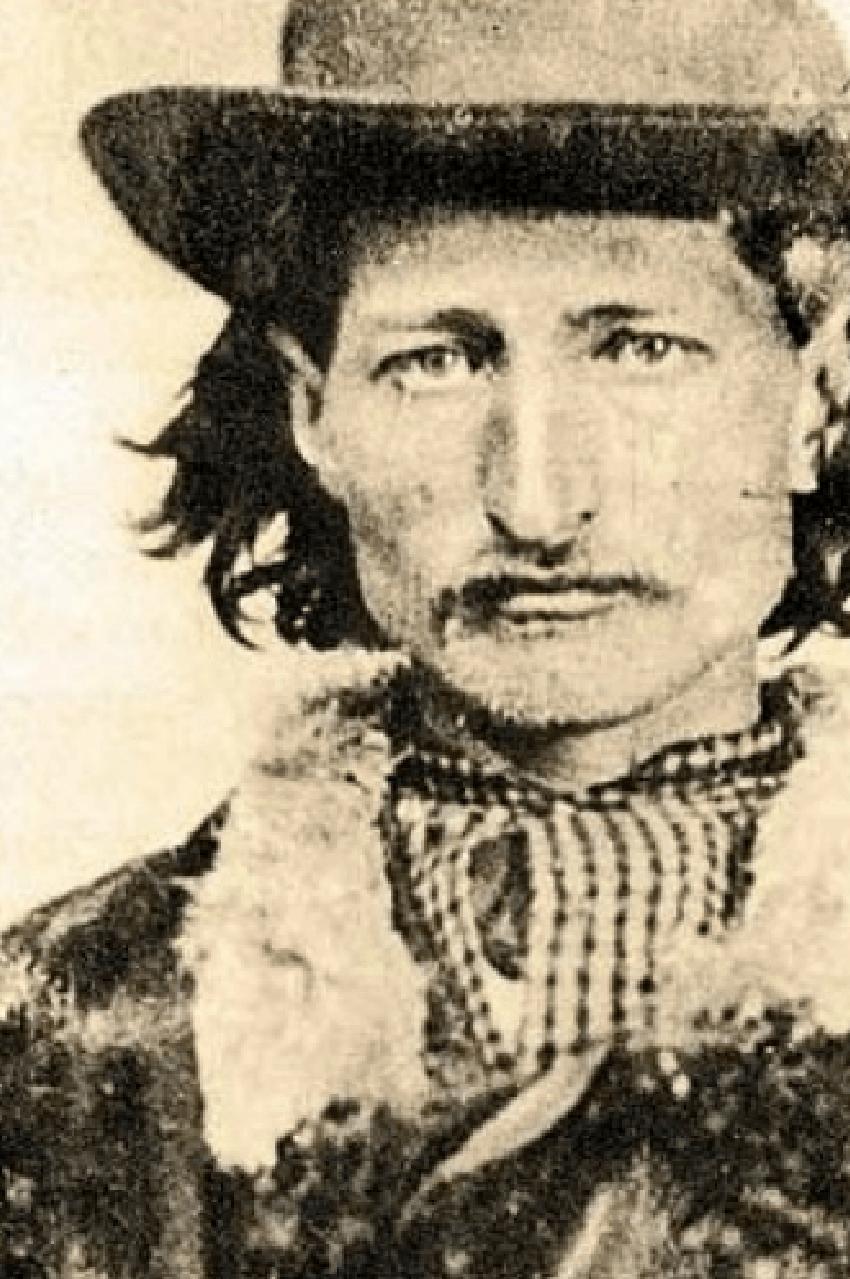
Whenever Wild Bill Hickok was around, he liked to play against the Queen. In fact, he had invited her to sit in on a hand with him on August 2, 1876, the day Jack McCall shot and killed the legendary Western character. Alice had declined, stating that she had already committed to another game. When she heard he’d been killed, she raced to the scene. Hickok was sprawled out on the floor, and McCall was running for his life. Looking down at her friend’s body, she sadly said, “Poor Wild Bill. He was sitting where I would have been if I’d played with him.”
In 1910, Alice and Warren celebrated thirty-four years of marriage. Together, they had won and lost a fortune, bought, and sold several ranches in Colorado and South Dakota, and raised seven children. In the winter of that year, Warren contracted pneumonia and died. Alice remarried less than a year later. Her new husband was an obnoxious drunk named George Huckert. Huckert died on their third wedding anniversary.
At this point in her long life, Poker Alice had rid herself of the fashionable dress she once subscribed to and took to wearing khaki skirts, men’s shirts, and an old campaign hat. Her beauty had all but faded, and her hair had turned silver. The only thing that remained of the Alice of old was her habit of smoking cigars.
After moving back and forth from Deadwood to Rapid City and back again, Poker Alice left Deadwood for good in 1913. She relocated to Sturgis, South Dakota, and bought a home a few miles from Fort Meade. She also purchased a profitable “entertainment” business, one that attracted hordes of soldiers stationed at the post. In addition to female companionship, she also sold bootleg whiskey. There were times in her career as madam that the combination proved deadly.
It was a warm, mid-July evening in 1913 when twenty-six-year-old Private Fred Koetzle began hurling rocks at Poker Alice Tubb’s brothel in Sturgis, eventually shattering the upstairs windows. Koetzle and several other soldiers with K Company from Fort Meade stood outside the business throwing rocks and cursing at the occupants inside. Moments before the rowdy, intoxicated group had begun pelting the two-story bordello with stones, one of the men had cut the electrical wires leading to the house, casting it into darkness. Owing to their unruly behavior, it was 10:30 at night when Koetzle, Private Joseph C. Miner, and more than fifteen other infantrymen had been evicted from the business by the feisty madam who ran the resort. Less than two weeks prior, the men had been thrown from the premises for the same reason.
In retaliation, the soldiers had gathered every rock and pebble in sight that July evening and had begun destroying the property. The misguided troops were assaulting the house with another volley of rubble when shots from a Winchester automatic rang out. Koetzle, Miner, and the other men scattered to avoid the spray of bullets.
When the magazine of the gun was empty, all but two of the soldiers emerged unscathed. Private Koetzle had been shot through the head, and Private Miner had been hit in the chest. Both men were transported to the post hospital. Koetzle died shortly after arriving, while Miner was in critical condition and, in time, made a full recovery. Poker Alice was arrested and charged with the shooting death of Private Koetzle. Six prostitutes were also taken into custody. The gun the notorious madam used was found outside the door of her house, and the magazine was found laying on Alice’s bed. A box of shells was found under the bed.
In addition to being charged with killing a man, Alice was charged with violating the state law prohibiting the operation of a house of ill repute. Her bond was set at $1,000. The bond for the women who worked for her was set at $200 each. The five patrons in the brothel at the time Alice opened fire on the soldiers were taken to jail along with the business owner and her employees. Each man was fined $15 for frequenting a house of prostitution.
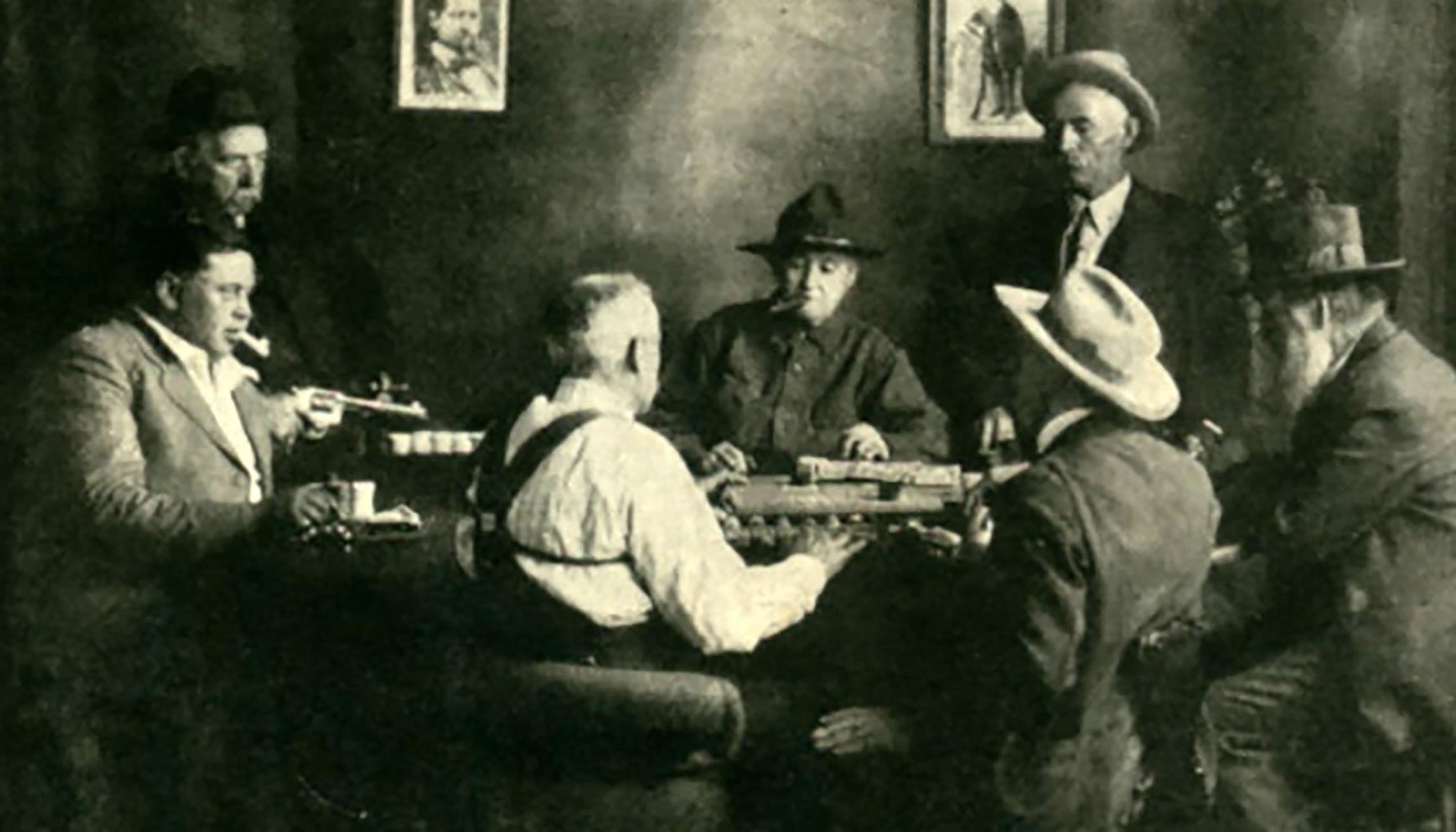
Alice was scheduled to appear in court in September 1913, but a few weeks before the hearing, state and city authorities decided not to prosecute. The facts of the case laid out for the judge showed that the madam had acted justly in defending her property and life, and she was released. Alice and the women who worked for her returned to their jobs soon after.
Poker Alice’s gambling house and bordello continued to peacefully service the Fort Meade clientele until 1924. Two separate incidents that year prompted law enforcement to investigate Alice’s business. Both incidents involved prohibition violations. On February 20, 1924, Rose Fillbach, one of the soiled doves at Alice’s brothel, was arrested on the premises when moonshine was found in her room. The man she’d been seeing claimed the liquor was his, and Rose was let out of jail.
Four months later, Alice’s resort was raided by the sheriff and his officers on a hunt for alcohol. More than a gallon of moonshine was discovered, and Poker Alice and five men visiting the women in her employ were arrested. She was released after paying a hefty fine for her transgression. The following year, Alice was arrested for operating a house of prostitution. The seventy-four-year-old woman spent a few days in jail and again paid a fine. To justify what she did for a living, Alice insisted that much of the money she made at her business was used to help Black Hills residents in need. “If I had all the money that I have passed out…I would be rich,” historians noted she remarked, “And there would be many haunting faces looking up at me from the past.”
An article in the June 6, 1927, edition of the Rapid City Journal announced that Poker Alice was going to take some time off from work to visit her sisters in Virginia for a few weeks. “Poker Alice, who was acquainted with Buffalo Bill, Wild Bill Hickok, Calamity Jane, Deadwood Dick, and many other of the famous individuals of the early days, was in Rapid City Friday,” the article read. “She was here to renew old acquaintances and to inspect Rapid City…. She has been in the Hills for many years and enjoys nothing better than relating incidents of early Black Hills days.” Alice returned from her trip on September 28, 1927.
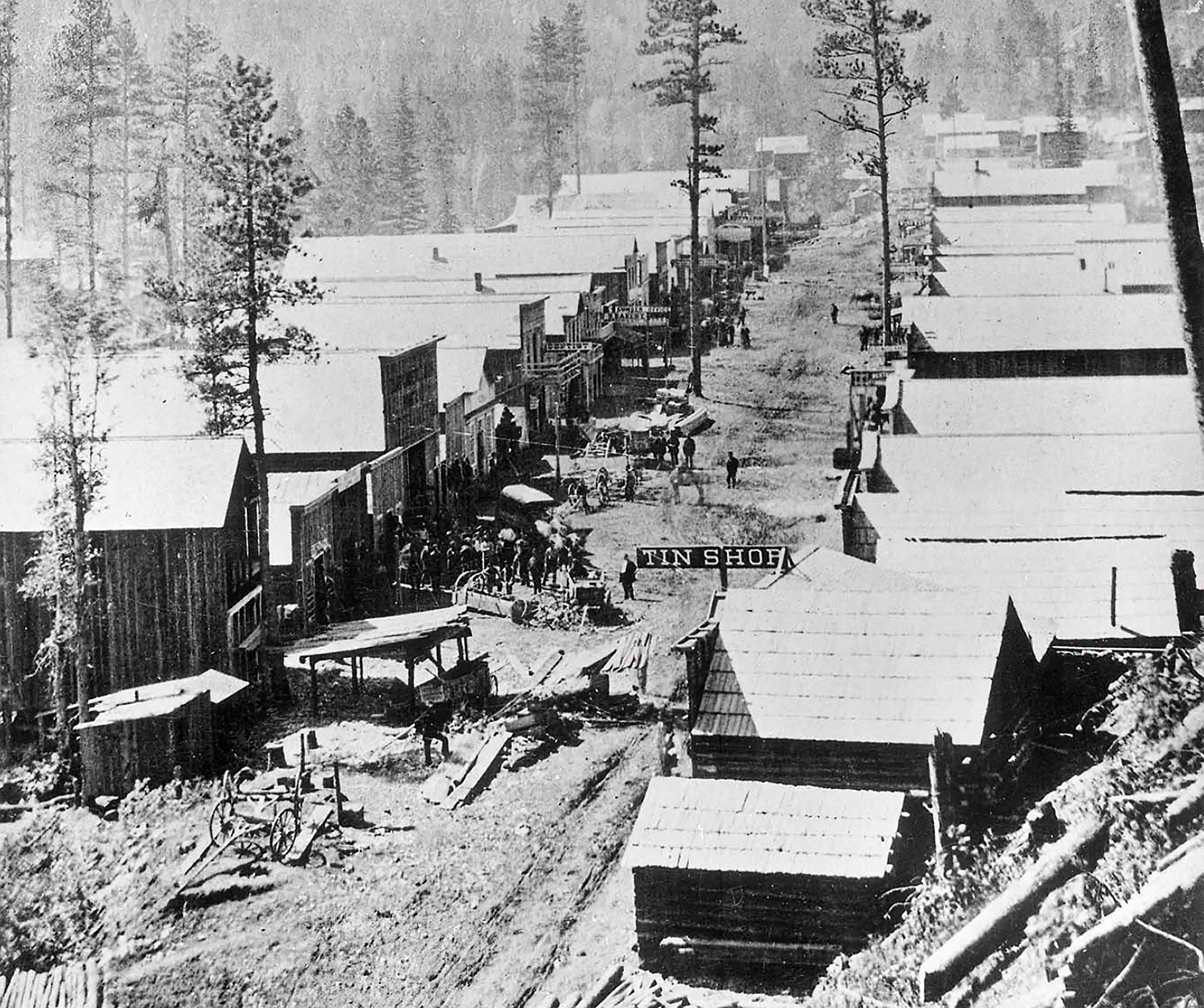
Prior to leaving town to visit family, Alice had informed friends and newspaper editors that, along with former Kansas City Star and Denver Post reporter Courtney Ryley Cooper, she was writing an “interesting sketch on her experiences in Arizona, Colorado, Wyoming, and the Black Hills.” Alice’s story entitled “Easy Come, Easy Go,” was published in the December 1927 edition of the Saturday Evening Post. “Easy Come, Easy Go” was about Poker Alice’s life as a woman gambler in various mining towns.
“I had set my poker face and chewed my big black cigars and brought the cards from the faro box in practically every big camp of the West before this time,” she noted in her tale. “I simply cite the journey as an instance of what the gambler of the old days—man or woman—would undergo to reach a new camp and to be on the ground floor when the boom really broke.
“The term ‘professional gambler’ has a greatly different meaning today from what it possessed forty or more years ago. Then, it was not an outlaw practice to live by one’s wits and one’s ability to outguess the other person in a contest of cards. Dishonesty and crookedness were not the constant companions of games of chance. The gambler played because he loved it for the thrill of the turn of a card or a tight pinch in a contest with persons as sharp as he. Dishonesty hurt the thrill; when crookedness came to gambling, the real professionals quit, leaving the game to be taken by men—and women—who should have been called professional crooks instead.
“I dealt faro in old Fort Fetterman when the soldiers were there—a fort, incidentally, that has been abandoned now for more than thirty years. I saw Bob Ford killed just as I came off the afternoon faro shift in his gambling hall at Creede. I’ve won and lost in Alamosa, in Del Norte, in El Paso, in San Marcial; during the boom days of Leadville, Georgetown, Central City, and when miners’ money was plentiful in Lead and Deadwood and a score of other camps; but in all that time I handled a cold deck only once and that for a joke.”
Alice elaborated on her card playing skills in the story and told of other women gamblers who helped pave the way for her, women such as Madam Mustache, Haltershanks Eva, and China Mary. She also described gambling life in locations such as Creede, Colorado; Cheyenne, Wyoming; and El Paso, Texas.
“In the Cactus gambling hall in El Paso,” she recalled in her story, “I once saw a famous financier of the West lose $34,000 on what we called in those days shoot-mouth. In other words, he had brought but little money with him when he entered the place, and, losing that, had begun to borrow from the game to make his bets. When he retired from the gambling hall, there was no promises, no agreements, no signing of notes or writing of checks. It was an affair of honor; everybody knew that the next morning the colonel would arrive and, in courtly fashion, hand over to the game keeper $34,000 in bank notes in payment of his honest debts. That was in fair-and-square days.
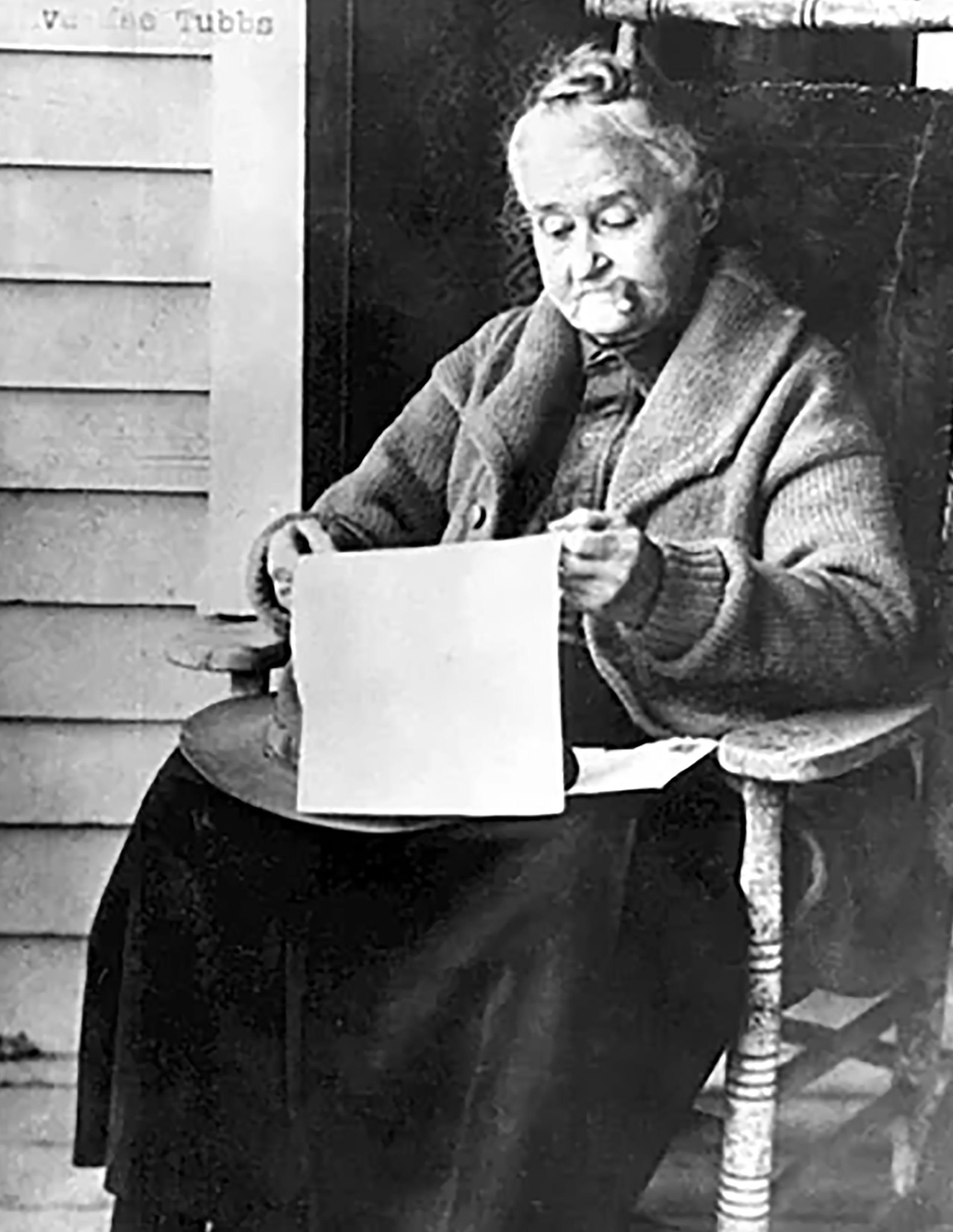
“Against that, I have seen men with their fingers sandpapered until the blood oozed through the skin. Card marking at that time was done by very fine indentations made with a pin or needle. The crook, as he dealt, must have fingers sensitive enough to read markings that would pass unnoticed in the ordinary man’s hands; and the person who helped these men the most was the crooked saloon keeper.
“…Other [mining] camps beckoned me, among them Deadwood and Lead, in the heart of the last frontier of America’s various mining rushes in the Black Hills.… There was a well-known character there who would take a stranger into a back room and with a deck of cards show the stranger almost inconceivable feats of manipulation, hereby promoting a partnership by which he announced that he could win all the money in the world.
“But when he got into a game with the sharp eyes of professional gamblers upon him, the courage necessary to that crooked skill wilted and he became only a frightened, exceedingly bad player who lost his stacks of chips almost as soon as they were set before him.
“One night in Deadwood, I felt the urge of luck and the stronger urge of gambling. I bucked the game with disastrous results to my own money. Then I took my husband’s money and gambled that, too. The result was the same. Broke, flat broke, I looked about for a new stake and thought of Mike Russell, a pioneer saloon keeper in Deadwood.
“Women were not allowed in Russell’s place of business; only one was ever to break the rule—Calamity Jane—and that only because she dressed like a man and acted so like a man that the rule against femininity hardly held for her.
“It is still good to play, still a thrill to look at the faces about a [poker] table and to know that you are matching your brains against those of whom card playing is a passion. But I want those men, in these new and hectic days, to be ones with years of friendship behind them. Otherwise, I obey the signs of the Pullman cars: Don’t Play Cards with Strangers.”
In late 1928, Poker Alice ran afoul of the law again and was arrested for “keeping a house of ill repute” and “possession of intoxicating liquor.” She was found guilty and sentenced to a six month stay in the state prison at Sioux Falls.
Friends of the elderly madam appealed to South Dakota governor William J. Bulow for mercy. Alice was in poor health, and they didn’t think she would survive incarceration. Several people in Deadwood and surrounding areas signed a petition asking the governor to grant Alice a full pardon. He did so on December 19, 1928.

Seven months after Alice was released from prison, a Catholic priest stopped by to visit her at her home and discovered that she was seriously ill. Her doctor called on her but couldn’t determine the problem. She refused to go to the hospital for testing and decided to stay in bed until the ailment passed. For a time, her health was improving.
Poker Alice was often invited to take part in parades and other festivities celebrating the history of the Black Hills. She would sit on the back of an elaborately decorated float, dressed in a dark suit, a man’s gray shirt, and regulation army cavalry hat, and wave to the throngs of people who cheered for her as she passed by. City founders and area residents recognized her contribution to Deadwood’s colorful past praising her business sense and her genius at the poker table. Not everyone agreed that a gambler and madam should be publicly honored. In February 1930, Alice was hospitalized in Rapid City and was rushed to surgery to have gallstones removed. Doctors were hopeful she’d make a full recovery and be able to return home. Sadly, that was not the case. Alice Ivers died on February 27 at the age of seventy-nine. She was laid to rest at the Catholic Cemetery in Sturgis. Her estate, which at one time estimated to be worth millions, had been reduced to $50 and a few possessions.
Chris Enss is a New York Times bestselling author who has written about women of the Old West for more than thirty years. She’s penned more than fifty books on the subject and been honored with nine Will Rogers Medallion Awards, two Elmer Kelton Book Awards, an Oklahoma Center for the Book Award, three Foreword Reviews Magazine Book Awards, and the Laura Downing Journalism Award.










